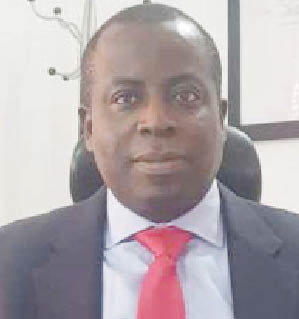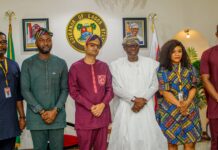The president of the Association of Telecommunication Companies of Nigeria (ATCON), Olusola Teniola has described Nigeria’s ICT sector as fragmented and the telecom terrain as in a state of flux due to absence of an updated regulatory regime that includes the fundamental application of regulatory tools and directives that promotes local content and prepares a foreseeable landscape for the data centric digitalisation that the new paradigm requires.
He made the assertion while noting that the infrastructure gap in South Saharan Africa ( SSA) (Nigeria inclusive) is massive, estimated at USD$3 trillion over a 30year period as many governments are struggling with budget deficits against budget sizes totally dwarfed by the average annual revenue line of any one of the FAANGs.

Teniola spoke at eGovernment forum that took place in Lagos at the weekend.
According to him the challenge as always is what comes first, effective government policies or the ability to manage technological innovation in the absence of an environment that is characterised by much uncertainty.
He said the culture of continually focusing on infrastructural rules that have a voice only technology ambit to will not suffice and it misses the underpinning adaptation that technology has brought as a disruptive enabler for AI, Machine Learning & Robotics to exist and that will be common with the commercialisation of 5G networks in just under 7 to 8 years from now (2025-6).
On the other, the industry, Olusola noted, has reluctantly recognised the sheer complexity that this brings to its current way of operating and as it was yet to absorb the nature of this technological advancement in addressing our multi-lingua society that exhibits a technology deficit from one spectrum (haves) to the other end (have- nots) when our basic education and tertiary Universities are still reeling out Computer Graduates, taught in COBOL or FORTRAN only.
Getting the industry out of the current quagmire, he argues can only be achieved through an ICT ecosystem that truly collaborates and imbibes the spirit of trust and partnerships, right from academia, Government to the big juggernauts fighting to preserve their patch.
Without collaboration and partnership being fostered, the industry runs the risk of defining and creating at best islands of progressive digital communities and landscapes that are not interconnected under a ‘winner takes all attitude’, with negative socio-economic flaws.
“This scenario stares us in the face and without a rallying call for us to take a step-back to reshape and re-mold our current relationships within the industry; we face the risk of increasing the level of poverty and the African problem at large”, Teniola stated.
While the data centric landscape is yet to be fully defined and crystallised in SSA, Teniola said in Nigeria, where there has been recorded evidence of latent demand for localised content and associated services, the potential remains untapped due to multi-faceted recurring structural challenges.
While reports show the number of unique mobile subscribers and subscriptions has flattened out to 170m yearly , multi-SIM usage is prevalent in the growing smart phone adoption rate numbers, constrained by the weak economic environment and low consumer purchasing power, so bandwidth hungry applications and resource demanding streaming services are contained within walled garden areas in the big urban cities where infrastructure is struggling to meet quality of service expectations, he said.











